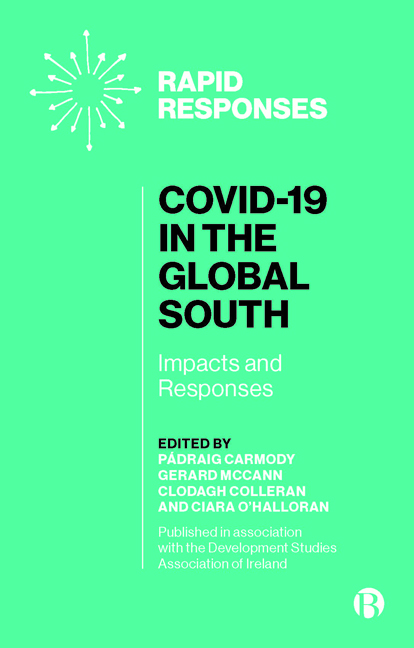4 - Development Education, COVID-19 and Neoliberalism
Published online by Cambridge University Press: 23 March 2021
Summary
Development education (DE) is a sub-sector of international development which aims to tackle the underlying causes of poverty, inequality and injustice in the Global North and South with an interactive learning methodology that supports active global citizenship. Based on the radical pedagogy of the Brazilian activist, educator and philosopher, Paulo Freire (1996), DE has its roots in the Global South but has inspired educational practice across the world (Bourn, 2012: 25– 26). Development education is defined by the Irish Development Education Association as ‘an educational process which enables people to understand the world around them and to act to transform it. It works to tackle the root causes of injustice and inequality, globally and locally to create a more just and sustainable future for everyone’ (IDEA, 2020).
Central to this definition of DE practice and Freire's methodology is the concept of praxis – a combination of reflection and action. As Freire argued, ‘to surmount the situation of oppression people must critically recognize its causes, so that through transforming action they can create a new situation, one that makes possible the pursuit of a fuller humanity’ (Freire, 1996: 29).
What appears to be lacking in the response of the international development sector to the COVID-19 pandemic to date has been an analysis of its root causes. There has been a similar studied omission with regard to the climate emergency, despite suggestions that both crises – COVID-19 and climate change – are ‘inevitable outcroppings of the prevailing global economic growth model’ (Selby and Kagawa, 2020: 106). This chapter argues that in order to respond effectively to the coronavirus pandemic, we need to understand its connections to the neoliberal growth model that has underpinned ‘development’ since the 1970s. As Reid-Henry (2012) argues: ‘in terms of development policy, neoliberalism often boiled down to the belief that an intensified globalization was itself development, the two being inseparable sides of the same virtuous coin’. The outcome of the alignment of development with neoliberalism has been disastrous with 2,153 billionaires controlling more wealth than 4.6 billion people and almost half of the world's population living on less than US$5.50 a day (Oxfam, 2020: 7).
- Type
- Chapter
- Information
- COVID-19 in the Global SouthImpacts and Responses, pp. 39 - 48Publisher: Bristol University PressPrint publication year: 2020
- 1
- Cited by

